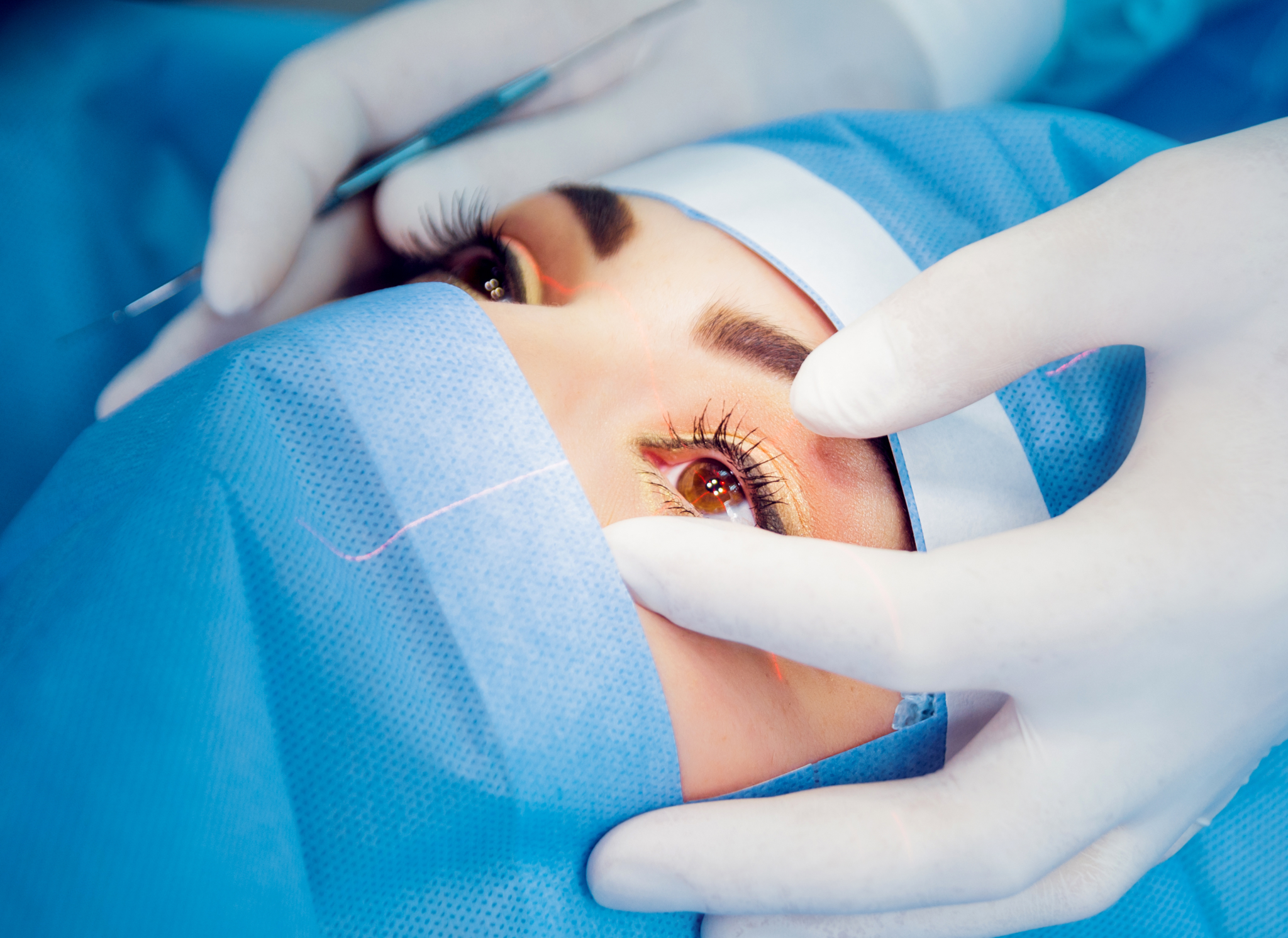Glaucoma
Eye Treatments
Clear the path to lasting vision! Our advanced care and cutting-edge treatments help combat glaucoma for a brighter future.
Glaucoma refers to a collection of eye conditions that harm the optic nerve, resulting in vision impairment. Typically, it is caused by increased pressure within the eye, known as intraocular pressure. This elevated pressure damages the optic nerve over time, gradually leading to peripheral vision loss and, if left untreated, potential blindness. It often progresses slowly and without pain, making it challenging to detect in its early stages.
There are different types, with primary open-angle glaucoma being the most common form. It occurs when the eye’s drainage canals become less effective at fluid drainage, leading to increased intraocular pressure. Another type, angle-closure glaucoma, arises when the iris blocks the drainage angle, causing a rapid pressure surge and acute symptoms such as severe eye pain and blurred vision. Normal-tension glaucoma is less prevalent and involves optic nerve damage despite normal intraocular pressure levels.
Early diagnosis and treatment are vital to managing this disease and preventing vision loss. Regular eye examinations that encompass measuring intraocular pressure, examining the optic nerve, and assessing visual field function are essential for early detection. Treatment options often involve lowering intraocular pressure through eye drops, oral medications, laser therapy, or surgical interventions, tailored to the specific type and severity of it.
All you need to know about eye surgery, including price, aftercare and healing process, or contact us!

FAQ
What is glaucoma?
Glaucoma is a group of eye conditions that can cause vision loss, usually due to increased pressure inside the eye. Early detection and treatment are important for managing it and preserving vision. Treatment options can include eye drops, medication, laser therapy, or surgery, depending on the specific type and severity.
Why glaucoma occurs?
Glaucoma occurs due to a combination of factors, but the primary cause is an increase in intraocular pressure (pressure inside the eye). This elevated pressure can result from a buildup of fluid in the eye, known as aqueous humor, which normally circulates and drains through the eye’s drainage channels.
The exact reason for this fluid buildup can vary depending on the type of this disease. In most cases, it is due to a blockage or obstruction in the drainage channels, preventing the fluid from flowing out of the eye properly. This leads to a gradual increase in intraocular pressure, which can damage the optic nerve over time. Other factors include genetics, age, ethnicity, family history, certain medical conditions (such as diabetes and high blood pressure), and certain eye-related factors (such as thinning of the cornea or optic nerve).
Are glaucoma and diabetes related?
Yes, there is a relationship between glaucoma and diabetes. Having diabetes increases the risk of developing certain types of it, particularly open-angle glaucoma. Factors such as changes in blood flow to the optic nerve and abnormalities in the eye’s drainage system may contribute to this association. Regular eye examinations are important for individuals with diabetes to monitor for signs of glaucoma and manage the condition effectively.
Can glaucoma be cured?
No, glaucoma cannot be cured in the sense of restoring the damaged optic nerve or reversing its effects. However, with early detection and appropriate treatment, its progression can be slowed or halted, allowing individuals to preserve their remaining vision and maintain their quality of life. The primary goal of management is to control intraocular pressure to prevent further damage to the optic nerve. Treatment options may include eye drops, oral medications, laser therapy, or surgery, depending on the type and severity. Regular monitoring and adherence to the treatment plan are essential to effectively manage this disease and prevent vision loss.
How to prevent glaucoma?
To potentially reduce the risk of disease, it is important to take certain preventive measures. Schedule regular comprehensive eye exams, manage underlying medical conditions, engage in regular exercise, protect your eyes from injury, avoid smoking, maintain a healthy diet, and limit caffeine intake. These steps can help promote eye health and potentially delay or minimize the onset. However, regular eye examinations are still essential for early detection and effective management of the condition.
Is glaucoma contagious?
No, glaucoma is not contagious. It is not caused by a virus, bacteria, or any infectious agent. This disease is a group of eye conditions that primarily result from increased intraocular pressure or other factors that lead to damage of the optic nerve. It cannot be spread from person to person through contact or any other means.
Contact us now in case you have any questions!
Types of Treatments
Request Form
Get your free consultation
- Need guidance and reassurance?
- Talk to a real person from MedClinics!
- Let's find the perfect doctor together.